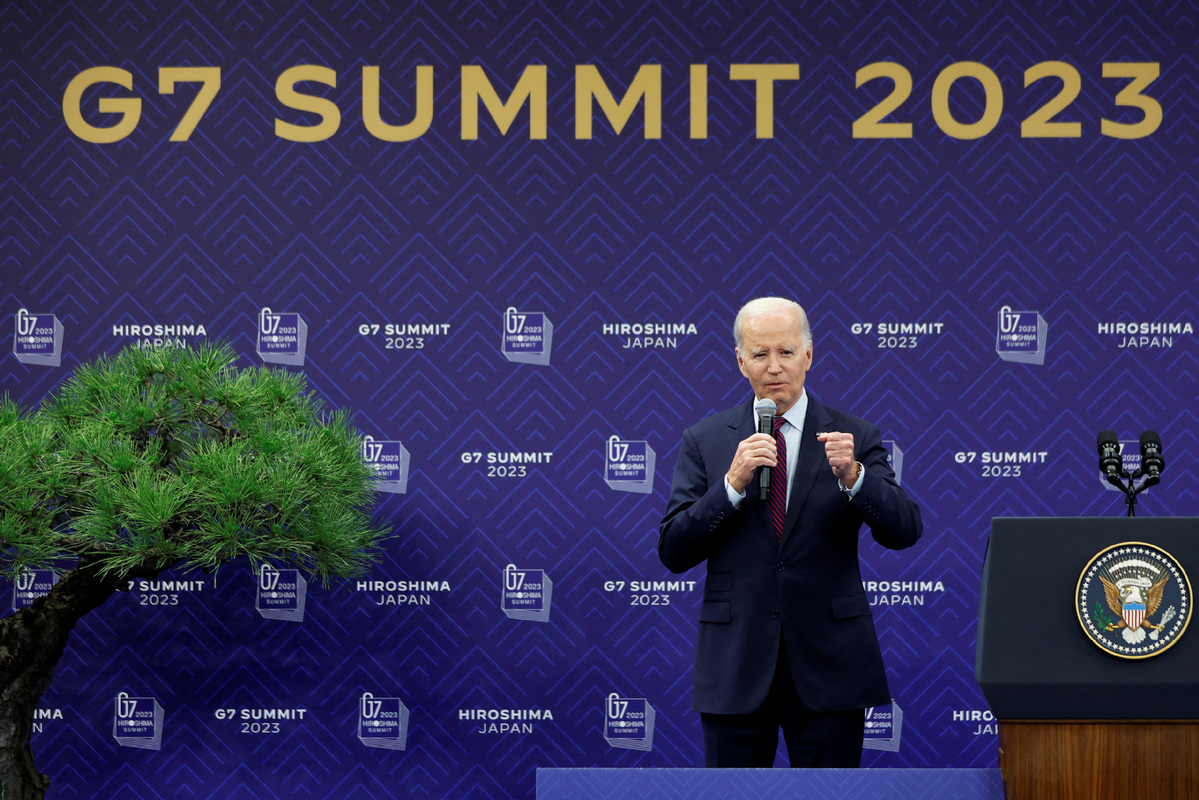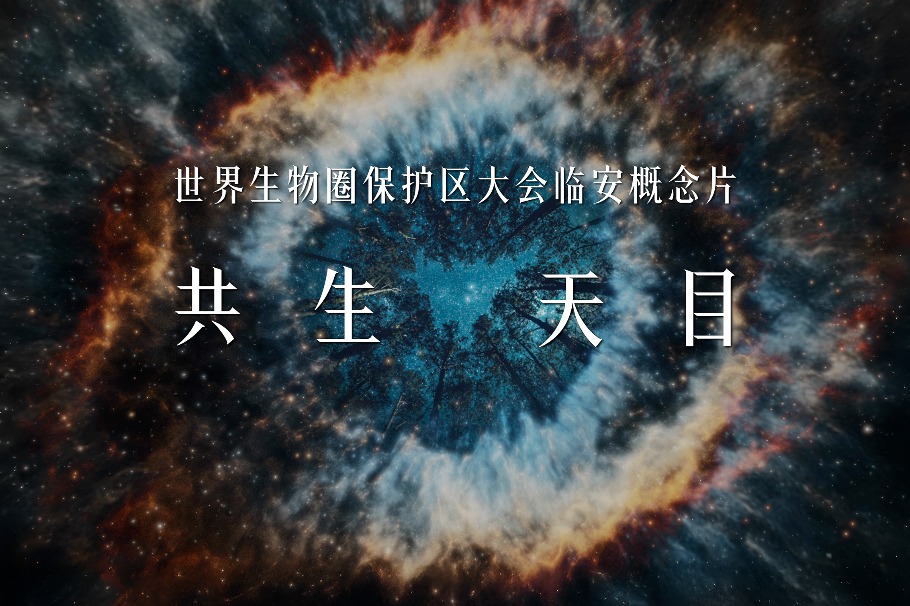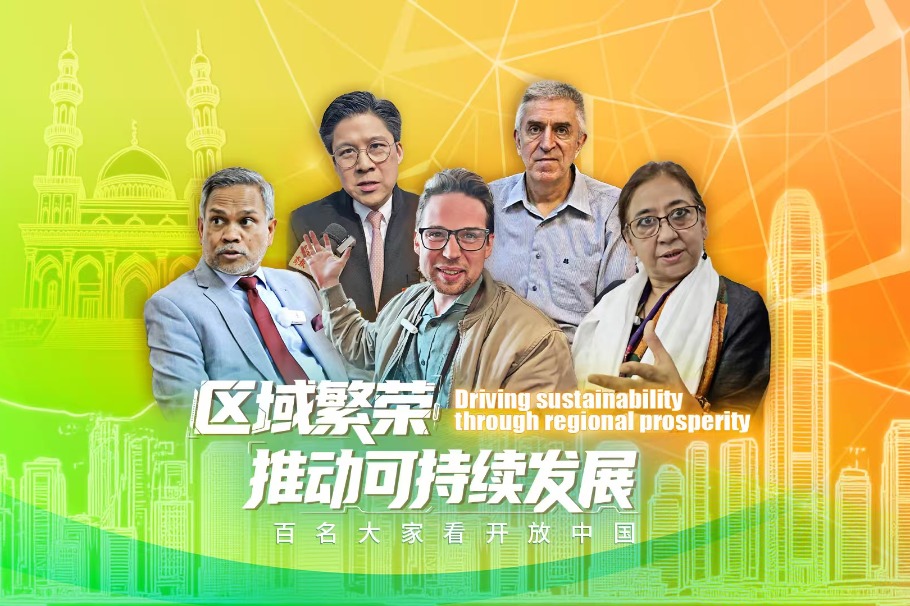G7's 2023 Communiqué on China epitome of irony and hypocrisy
By Zhao Chunlei | chinadaily.com.cn | Updated: 2023-05-24 16:48

On May 21, the annual Group of Seven (G7) issued a joint statement after its Summit, the "G7 Hiroshima Leaders' Communiqué" (hereinafter "the 2023 Communiqué").
Compared to the G7's previous annual Communiqués, the 2023 Communiqué more clearly targeted China by providing an extensive part addressing the so-called "China issue", using about 1.6 times more words than the 2022 Communiqué, and mentioning "China" 14 times in comparison to 4 times in the 2021 Communiqué. Analyzing those statements regarding China reveals, interestingly, some ironic points. The following three are typical examples.
Urging China "not to conduct interference activities"
The 2023 Communiqué contains a separate section calling on China to act in accordance with the Vienna Convention on Diplomatic Relations and the Vienna Convention on Consular relations, and "not to conduct interference activities". This demand is ironic as the G7 obviously meddles in China's internal affairs by hyping up the Taiwan question and making accusations regarding the East and South China Seas, Hong Kong, Xinjiang, Tibet and China's nuclear power and alleging G7's opposition to "any unilateral attempts to change the status quo by force or coercion".
Non-interference in internal affairs is enshrined in the UN Charter, which is also the fundamental norm of international relations and the basis for ensuring world peace and stability. However, the G7 Communiqués have always meddled in China's internal affairs and disrespected China's sovereignty, which typically goes against the basic principles of international law. In particular, the remarks on the East and South China Seas shows the G7 turning a blind eye to the clear provisions of the UNCLOS and the illegality of the South China Sea arbitration.
Yet, the joint declaration issued by the six participating states of the just concluded China-Central Asia Summit stands in stark contrast, where firm support to each state concerning their respective core interests such as sovereignty, independence, security and territorial integrity, together with a blueprint for promising development with a shared future, is clearly presented.
Accusing "economic coercion" from China
Another ironic point of the 2023 Communiqué is that, while stating "we recognize that economic resilience requires de-risking and diversifying", the G7 members disregarded the significance enjoyed by the Chinese path to modernization for the world's economic development. Even worse, the 2023 Communiqué alleged the challenges posed by China's non-market policies and practices, and expressed the G7's determination to "counter malign practices" and "foster diversification and resilience to economic coercion".
It is ironic that the US, the biggest player of economic coercion and bullying, ignored realities and criticized others for the actions that actually taken by it. From dollar hegemony to trade sanctions, from generalizing national security to abusing export control measures, the US has been using the economy to suppress other states and to escalate coercion in the world. It seems to have been forgotten by the G7 members that their companies, such as Tushiba and Siemens, are actually victims of the US's economic coercion. The 2023 G7 summit has been used by the US as another tool to disseminate China's economic coercion propaganda, consolidate an anti-Beijing circle and further split the world.
Warning China as a "threat" to world peace and development
In terms of world's peace and development, the 2023 Communiqué called on China to press Russia "immediately" and "unconditionally withdraw its troops from Ukraine". In addition, the G7 also called for China's cooperation on shared global challenges, in particular addressing climate and biodiversity crisis.
As a non-party to the conflict between Russia and Ukraine, China has worked actively to promote a peaceful resolution. This is represented by the China's Position on the Political Settlement of the Ukraine Crisis, where a comprehensive, integrated and feasible solution to the crisis is proposed.
As to global development, there should be no doubt about China's great contribution in diverse areas in the past decades. Considering some G7 members' actions, such as sending illegal military personnel and troops to other states, pouring nuclear-contaminated water into the sea, and inventing strategy to create tensions, the real threat to world peace and development should not be difficult to identify.
As an epilogue, the issuance of the 2023 Communiqué indeed rings the bell for the world to review and reflect, particularly on who is conducting interference activities, escalating economic coercion, and threatening world peace and development.
Zhao Chunlei is a researcher at the Institute for International Dispute Settlement, Tsinghua University.
The opinions expressed here are those of the writer and do not necessarily represent the views of China Daily and China Daily website.
If you have a specific expertise, or would like to share your thought about our stories, then send us your writings at opinion@chinadaily.com.cn, and comment@chinadaily.com.cn.























